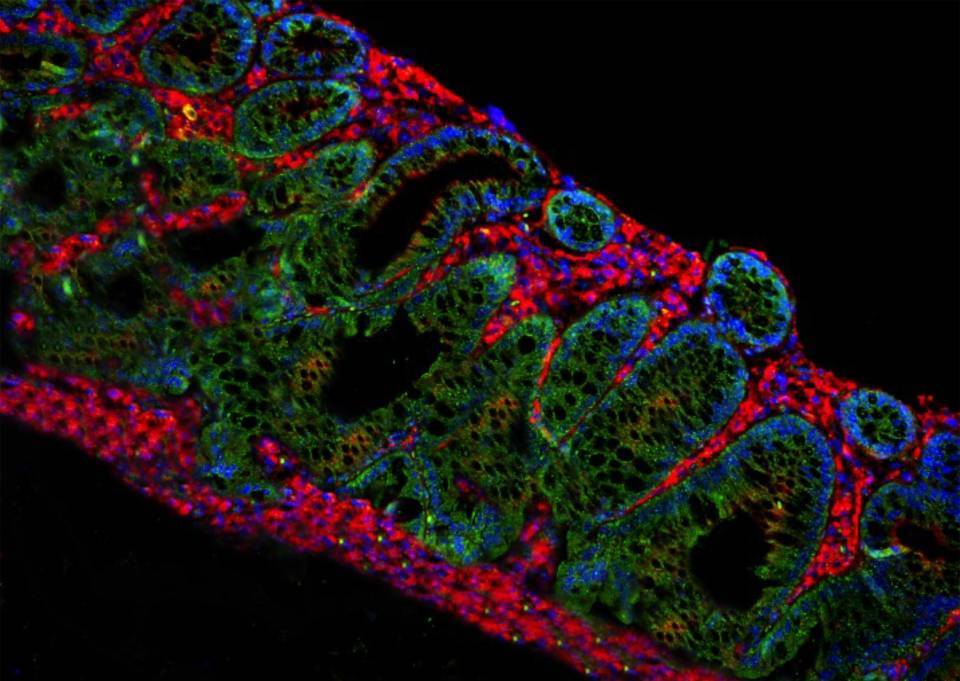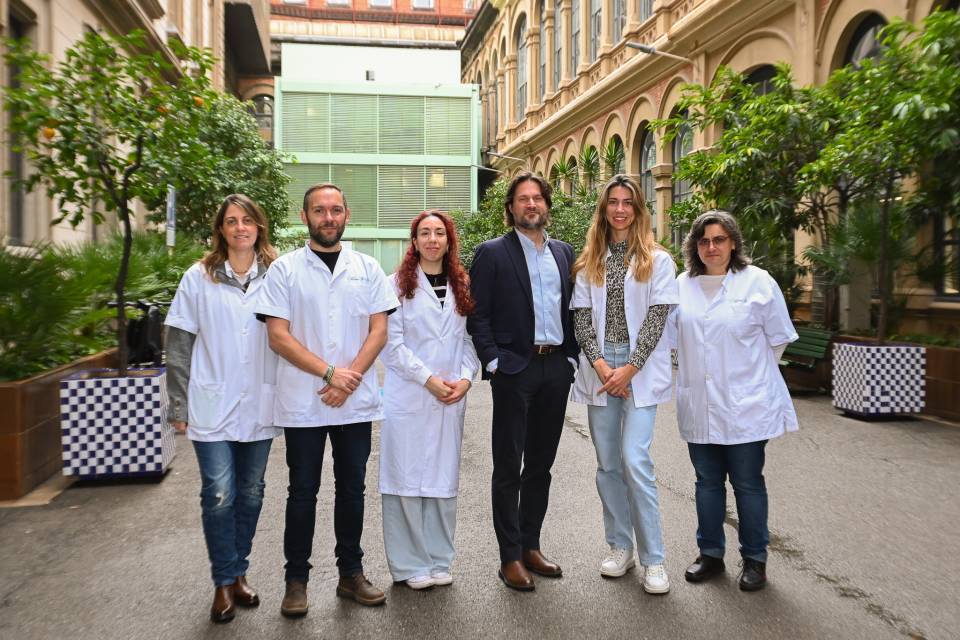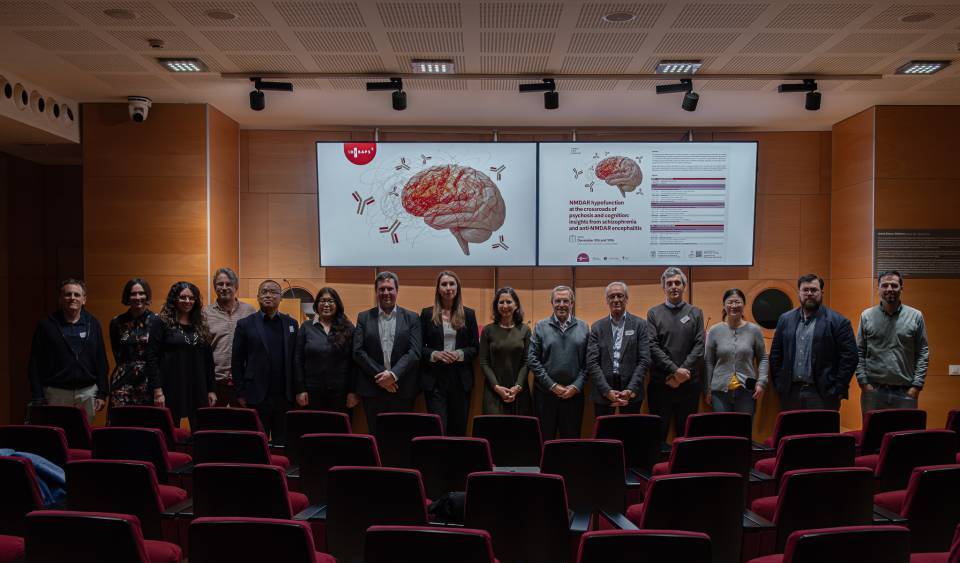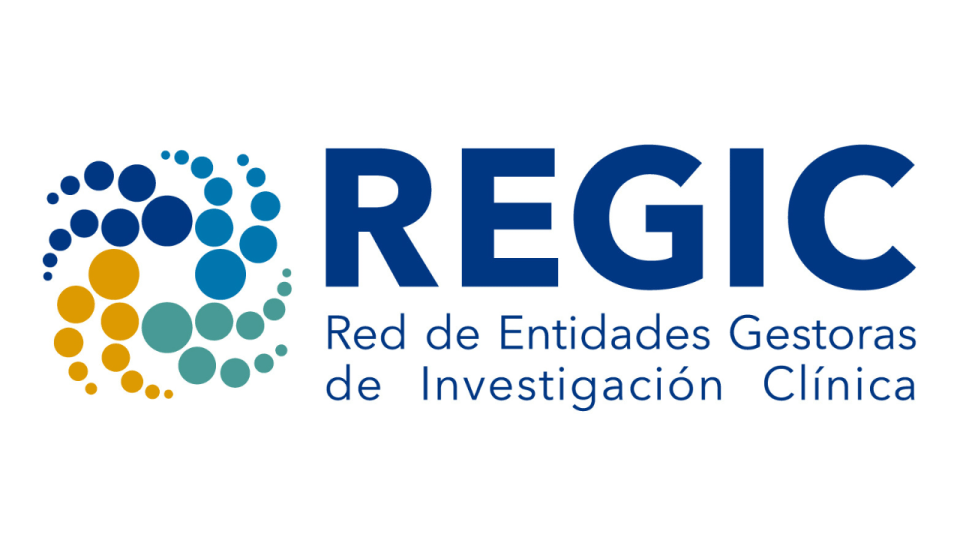The study, published in the journal Gut, shows that a protein known as ZEB1 promotes the progression of inflammation toward cancer. The first authors of this work are Oriol de Barrios and Lidia Sanchez Moral, experts in colorectal cancer, and Marlies Cortés, expert in immune regulation of inflammation, all of them working at the group Transcriptional regulation of gene expression of IDIBAPS.
Previous studies of the group had shown that an uncontrolled increase of ZEB1 contributes to the development of different types of tumors but its role in inflammation was unknown. Using samples of patients with Ulcerative Colitis (an inflammatory disease of the colon and rectum) and experimental mouse models, researchers have found that ZEB1 causes inflammation in the intestinal cells that contributes to its subsequent transformation into cancer cells. "The results obtained indicate that ZEB1 acts in early stages of cancer development, promoting tissue inflammation prior to tumor formation," explains Dr. Oriol de Barrios.
The protein ZEB1 inhibits the body's self-repair mechanisms
The work shows that, during inflammation, ZEB1 not only promotes lesions in the DNA of the cell, but also prevents the repair of these lesions through the inhibition of an enzyme called MPG. “Our body is able to repair the lesions that continuously occur in the DNA. This study demonstrates that the ZEB1 protein inhibits these self-repair mechanisms, ”says Lidia Sanchez-Moral.
In response to DNA lesions, the cells of our own immune system respond with the production of substances that help increase inflammation. "The work shows that DNA lesions caused by ZEB1 stimulate macrophages, a type of cells in our immune system, to produce an inflammatory environment thus forming a vicious circle between inflammation and cancer," says Dr. Marlies Cortés.
The work reveals the role of ZEB1 in the inflammation that occurs before the formation of a tumor and can help to develop neew strategies in the treatment of ulcerative colitis, as well as of other chronic inflammatory diseases that are risk factors for tumor development (for example, chronic pancreatitis or hepatitis).
In the study they have also participated members of the Gastroenterology and Medical Oncology Department of the Hospital Clínic de Barcelona as well as researchers from Hospitals Ramón y Cajal and Gregorio Marañón in Madrid and from the University of Louisville in the United States.
The study has been funded by various agencies, mainly by the La Marató of TV3 and the Agency for Management of University and Research Grants (AGAUR) of the Generalitat de Catalunya.
Image: Expression of the protein ZEB1 in the colon.
Reference of the article:
O de Barrios, L Sanchez-Moral, M Cortes et al.
Gut. July 31, 2019. doi: 10.1136/gutjnl-2018-317294




